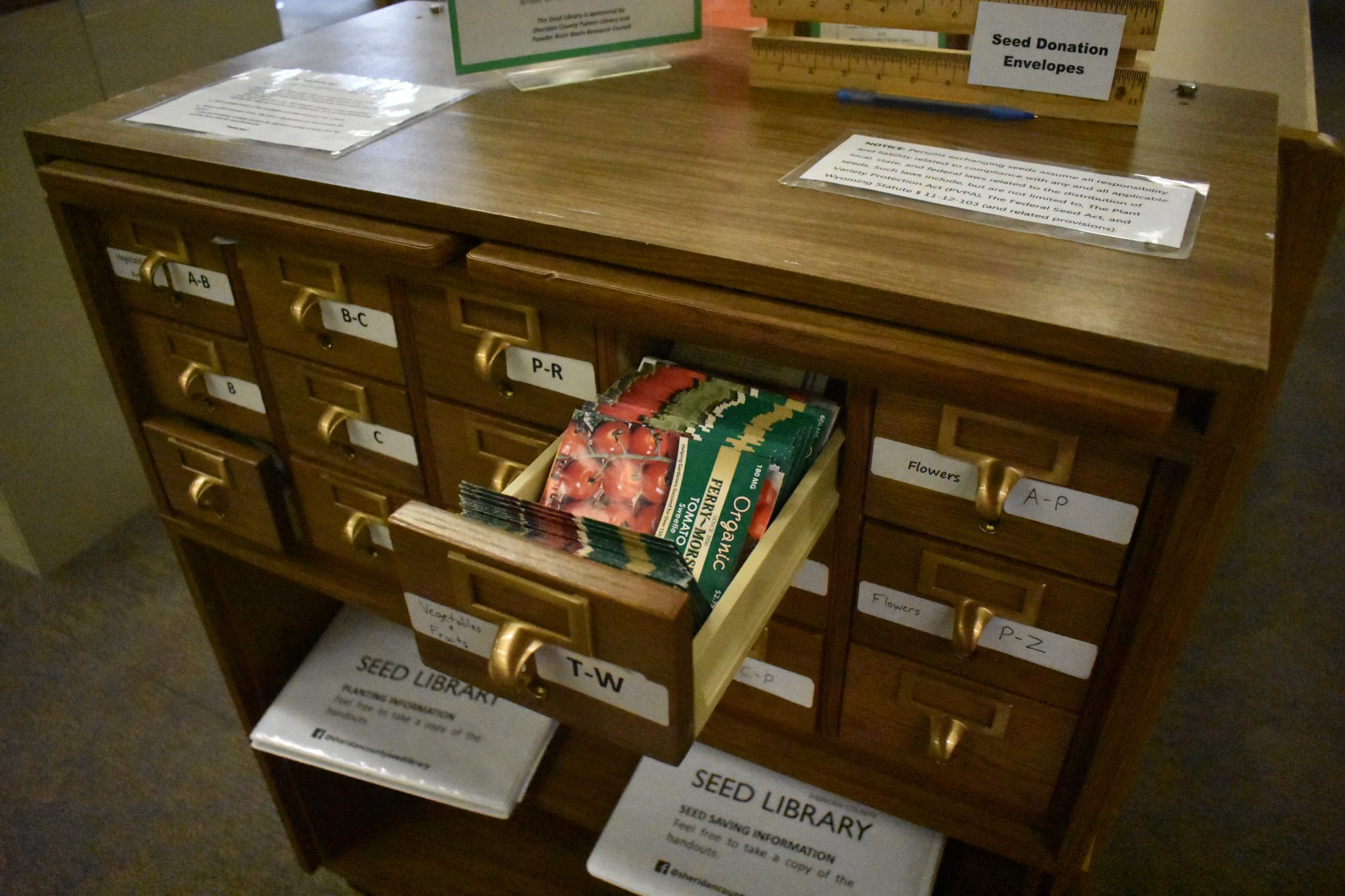alt
Check-Out Your Garden Seeds

Cynthia Vannoy
Its still not too late to plant a garden. Even though seeds are expensive, The Powder River Basin Resource Council and the Sheridan County Fulmer country library are together helping area gardeners grow healthy vegetables for their families. The Seed Library, sponsored by the PRBRC, has several seeds that any one can check out and plant, although they are not required to bring the excess back, it is appreciated.
Jill Morrison, of the PRBRC, said that the Sheridan Seed Library is about 5 years old. “It used to be at the Extension service, but not as many people took advantage of the seeds, so we moved them into the library about three years ago. Last year, due to Covid, the seeds were put on a porch, so people could check them out without going into the library.”
The mission of the seed library is to support a thriving community of gardeners and seed savers, provide information and education about sustainable gardening, and cultivate a culture of sharing
The seed library has a collection of vegetable and herb seeds, some collected locally and some donated by seed companies.

According to the seed library brochure, to check out seeds one has to: 1) Fill out a Membership Form located in the white binder at the information counter. Use this form each time to check-out seeds. Seeds are organized by name and type (fruit & vegetables, herbs, and flowers) gardens may check-out up to 5 seed packets per month and organizations may check-out up to 20 seed packets per month.
The PRBRC also asked gardeners to save seeds each fall, to donate them to the seed library for the next springs planting. They stress there is no obligation, but they are happy to accept donations of open-pollinated, heirloom or non-hybrid seeds in any quantity. There is a brochure available at the Sheridan Fulmer Library that gives detailed instructions on saving seeds for the seed library.
According to information from the seed library brochure, humans have relied on seed saving for over 10,000 years. Saving seeds helps to preserve biodiversity, makes local seed stock more genetically diverse, resilient, and adapted to Wyoming’s growing conditions, and creates a vibrant gardening community. By saving seeds, you are carrying on a deeply held agricultural tradition, vital to the food that we eat, cultures we maintain, and knowledge we pass on.

So, for those wanting to know where their food is coming from, this year might be the year to start your own garden.

